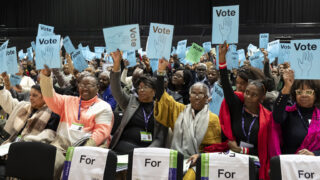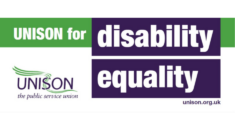We’ve heard a lot about health inequalities since the start of the Covid-19 pandemic, but what are they exactly? Health inequalities are the disparities in occurrence, diagnosis, treatment and outcomes between groups of people.
Covid-19 has had a disproportionate impact on Black communities in the UK. A number of factors have contributed to this, including poorer socioeconomic circumstances, discrimination, and barriers to accessing information. Black workers are disproportionately represented in insecure, low-paid work on casual or zero hours contracts.
UNISON’s Equality Survey 2020 on Covid-19 reported that 42% of Black respondents were still working in their usual place of work, despite the work from home if possible advice issued by the government at the time. Of the 32.9% of Black members who felt the employer was not taking adequate steps to ensure their safety in the workplace, 59% noted the lack of, or inadequate PPE provision. Members reported feeling unable to raise concerns due to the fear of job loss or a reduction of hours meaning a drop in income.
Health inequalities are not new. There have always been disparities in the experiences of different communities within various health services. Racism itself can lead to physical and mental ill health which increases the occurrence of Black communities requiring medical services, particularly mental health.
Black workers may face additional difficulties dealing with the symptoms of ill health, particularly if there is racial discrimination in the workplace, which can mean problems in accessing appropriate support, time off for appointments, or having their symptoms taken seriously.
The barriers to health equality can also be found in health services. Areas such as maternity and mental health, have evidenced inferior diagnosis, treatment and support for Black people. These barriers often begin with difficulties accessing information in order to receive the correct diagnosis and subsequent treatment. Cuts to resources and negative stereotypes of Black patients (particularly in Mental health) also contribute to the inequality experienced.
Redressing the balance
Many health trusts and foundations are reviewing policies and undertaking work on issues of race and health inequalities. Their objectives are to improve diversity within the sector and encourage inclusion. In addition, many trusts have equality and diversity roles whose responsibilities include engaging Black communities.
It is essential that Black people have their voices heard in these reviews and one way of doing this is by participating in consultations and surveys.
Healthwatch England are currently running a survey for feedback on health and social care services.
If you have been waiting for hospital treatment during the pandemic, you can feed back your experience.
The NHS requires that every GP practice has a Patient Participation Group (PPG). These groups obtain patient experiences to help improve, support and develop services. Black people are underrepresented in these groups, but you can get involved today by contacting your GP practice.
Where to go for more information
England
If you are an NHS service user in England, you can find your local Healthwatch and get involved in service participation programmes.
Northern Ireland
Care Opinion has been chosen by the Public Health Agency in Northern Ireland as the online patient feedback platform.
Scotland
Health Care Improvement Scotland: Community Engagement often calls for patients to feed into processes to help shape services.
Wales:
Community Health Councils are independent statutory organisations that represent the interests of the patient and the public in the National Health Service. Find your local Community Health Council here.







